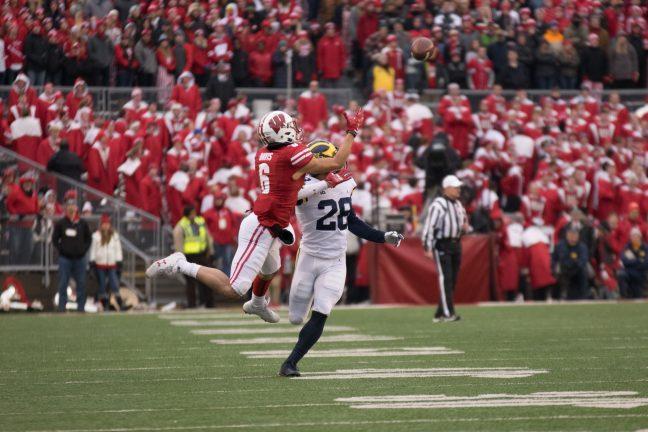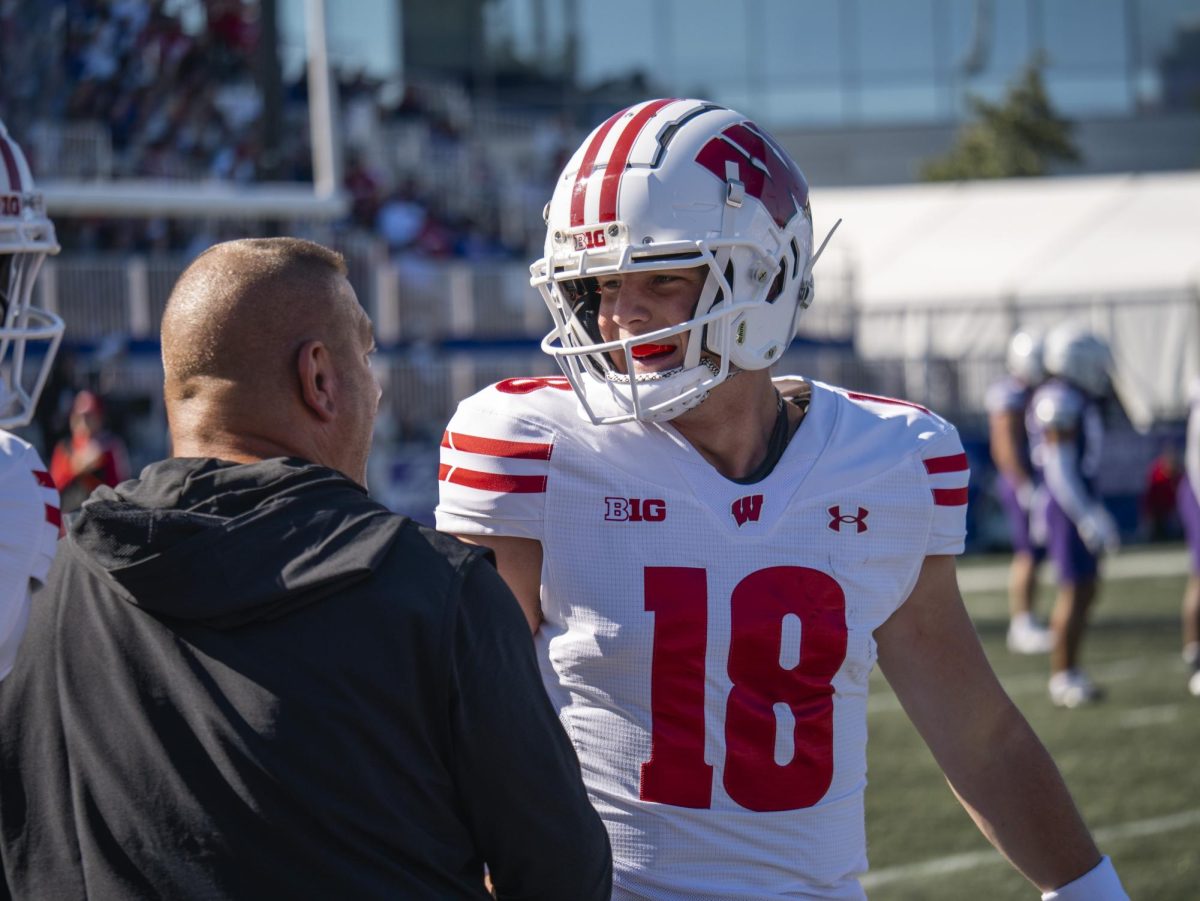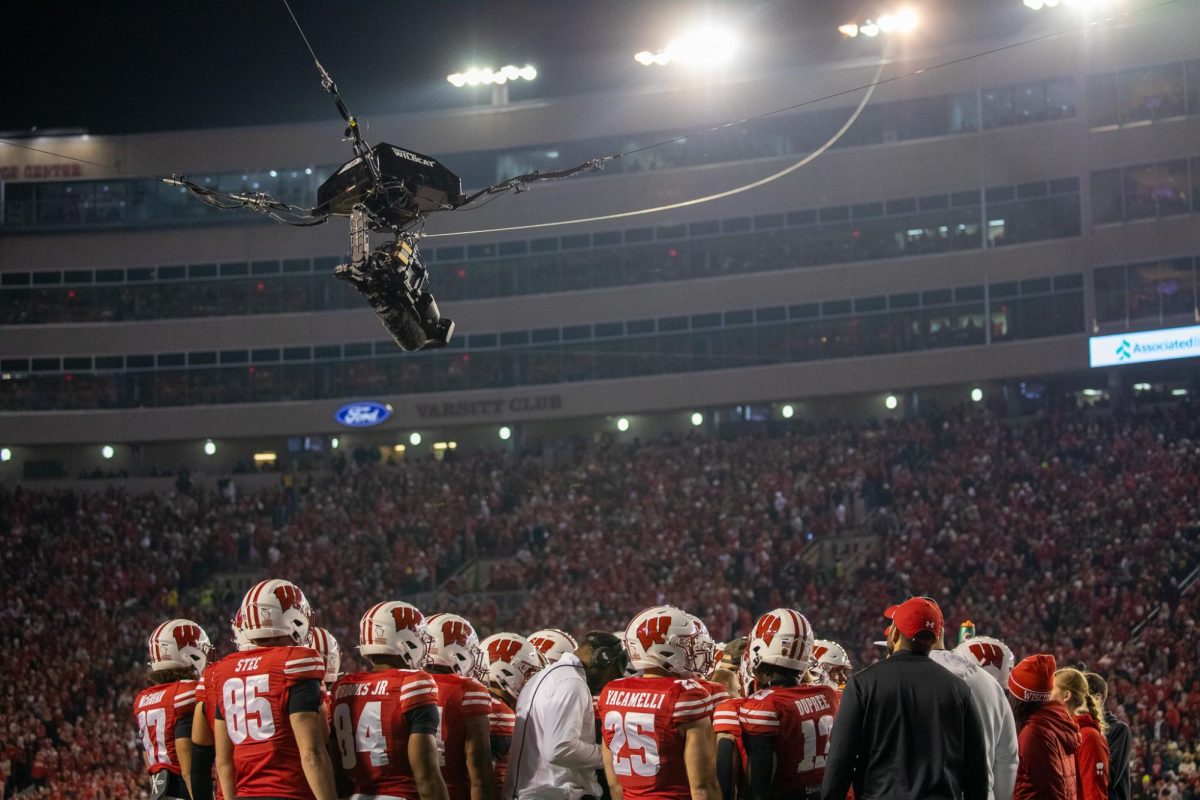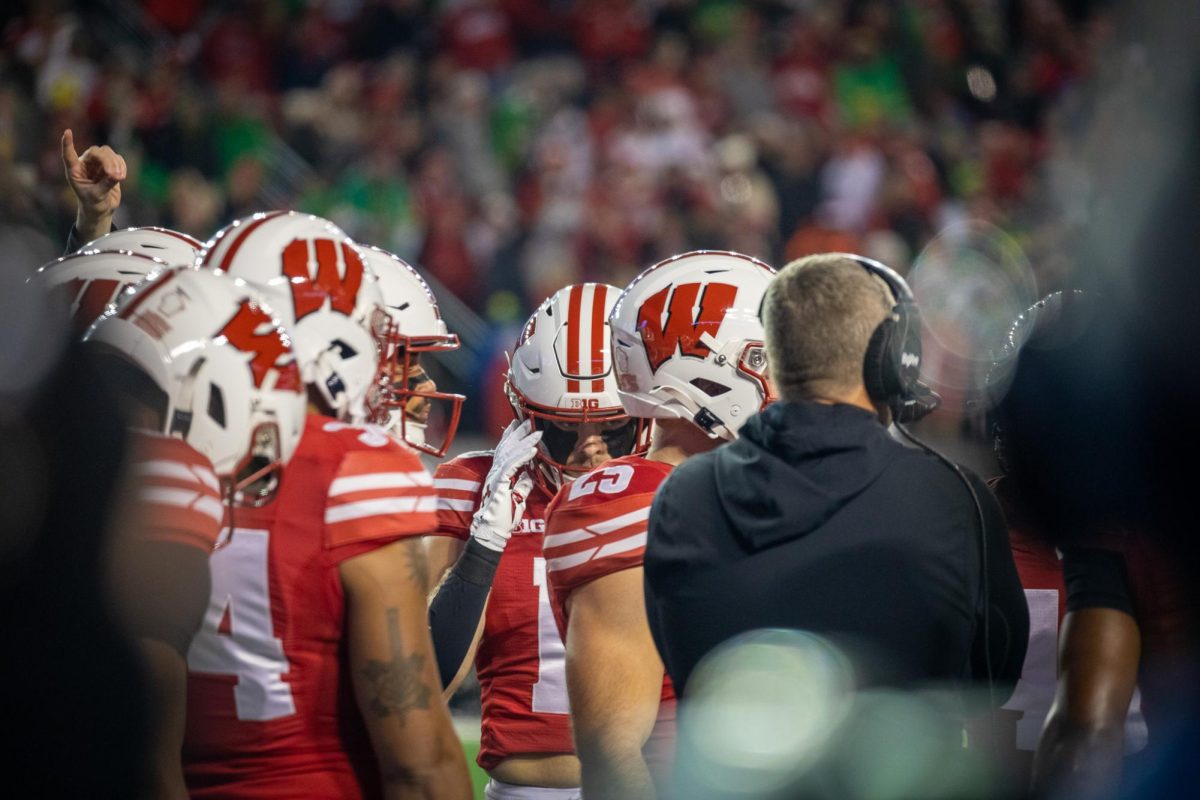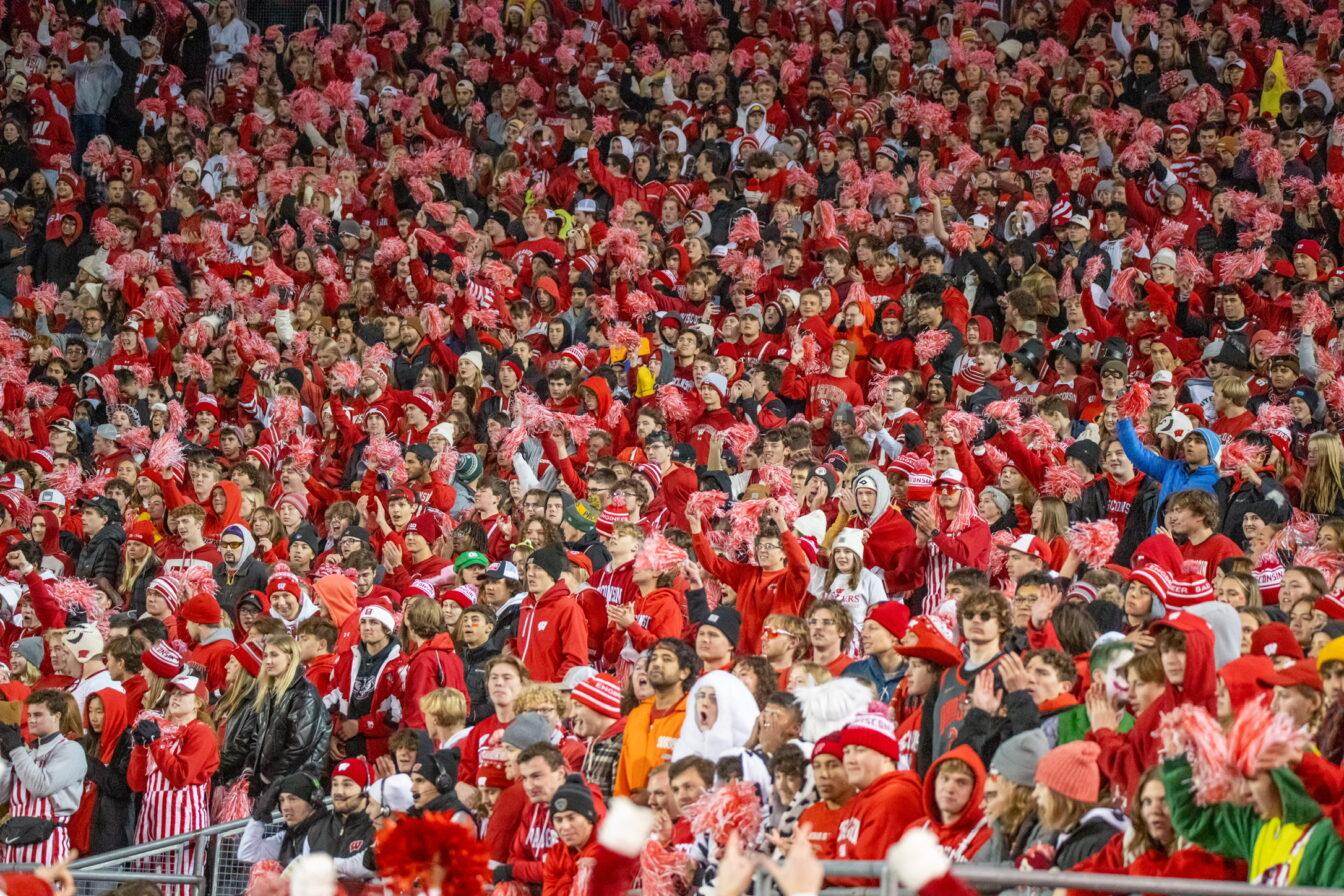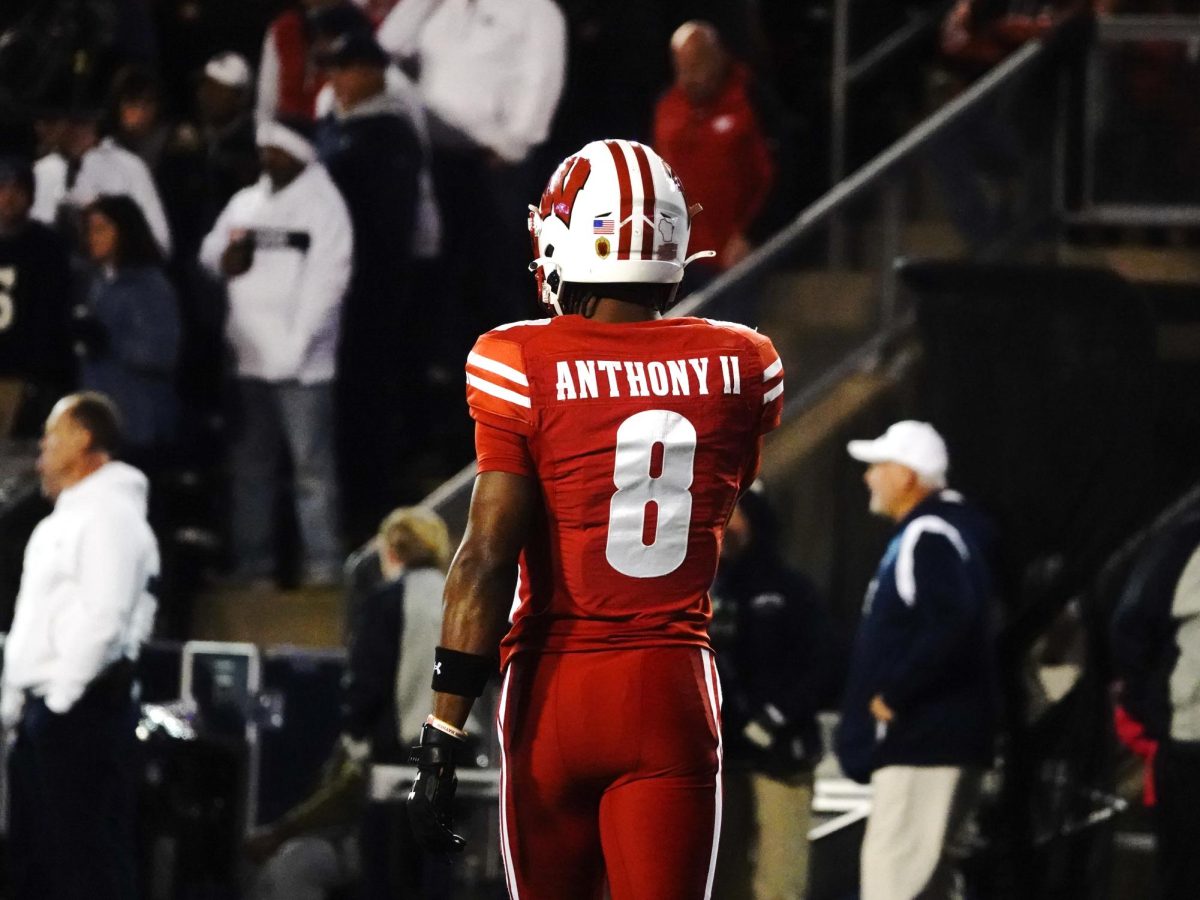There’s nothing quite like an opponent penalty in college football. The student section breaks into chants and jeers, mocks the other team and celebrates the call. The players react emphatically, waving their arms in exasperation or pointing downfield in support.
But there is one penalty that is more nuanced than the perceived zero-sum gains from the average foul — pass interference.
The NCAA rule for pass interference is “Team A’s ball at the spot of the foul, first down, if the foul occurs fewer than 15 yards beyond the previous spot. If the foul occurs 15 or more yards beyond the previous spot, Team A’s ball, first down, 15 yards from the previous spot [S33].”
What this means is that if an opposing receiver outpaces Wisconsin cornerback Derrick Tindal on a long pass (over 15 yards), Tindal may decide to interfere with the receiver to prevent a completed pass. Normally, Coach Paul Chryst would be upset with his defense giving up a penalty, but would he really be angry that Tindal traded a possible long pass or touchdown for a 15-yard gain?
Fergusons and Benzschawels find unique experience in playing with their siblings on the field
College defensive pass interference is certainly a break for the offense, but it is also a possible tool for the defense.
This is not the case in the NFL, where games often hinge on one pass interference penalty.
When Vikings wide receiver Stefon Diggs makes contact with Packers cornerback Josh Hawkins waiting for an incoming deep pass from Vikings cornerback Case Keenum, the refs may call defensive pass interference, swinging the entire game. This penalty does not take the same measured approach they use in college.
According to the NFL rulebook, “The penalty for defensive pass interference is an automatic first down at the spot of the foul.”
Hawkins contact with Diggs could easily result in a 40-yard penalty that sets up an easy score for the Vikings. It is time for the NFL to adopt the same rule as the NCAA in regard to pass interference. Pass interference in the NCAA is fair — while pass interference in the NFL is a brutal penalty that leaves fan’s jaws agape as their opponent freely marches up the field.
Unfortunately, NFL quarterbacks exploit this rule when they see mismatches on coverage. Yes, this is a smart thing to do if the rule is in place, but it is time to play the game the way it is supposed to be played and not through cheap penalties.
The NFL needs to reform this rule, so games cannot be won through lengthy penalties. College football games win through the skill of teams, not feasting off of 40-yard penalties.
Thank you, college football, for playing football instead of strategically exploiting immense penalties.


